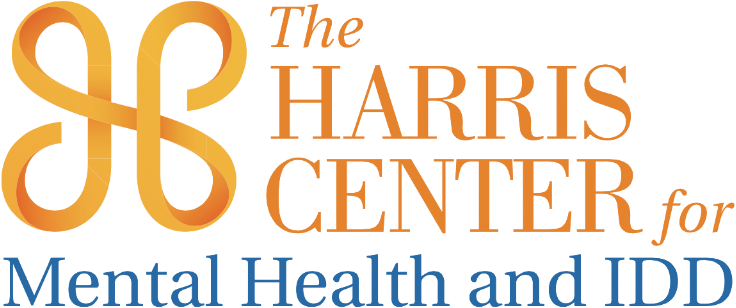
Everyone at some point in their lives will experience difficulties, challenges and hardships. While we face challenges with our physical health from time to time, we also face challenges that can have a significant impact on our mental health as well. These struggles can stem from a number of factors such as job loss, a broken relationship, loss of a loved one, financial hardships and coping with a scary medical diagnosis.
When facing unforeseen circumstances, some people may have a particularly difficult time quelling their negative thoughts and emotions, and these feelings can intensify over time. Their emotions can be connected to pain, suffering and hurt, or even shame and guilt. Some individuals experience emotions such as feelings of hopelessness and helplessness. These may link to a sense of overwhelm, and experiencing the world as not having any other options but to end it all.
As a clinical psychiatrist at The Harris Center for Mental Health and IDD, I work with many children and adults who are struggling with psychiatric conditions and/or mental health issues. When evaluating patients with suicidal thoughts, we assess how future oriented they are. What is their level of hopelessness and helplessness and what structural factors are temporary versus those that can be impacted over time. People feel different levels of intensity and may be unable to express in words exactly what they are experiencing. Oftentimes, individuals can have a reluctance to seek mental health services because of a desire to solve their own problems and overcome their own difficulties. There are also sometimes cultural differences on reaching out for help and stigma around receipt of psychiatric help. But there are times when we need to rely on the support of those around us – our families, our friends, our community, our church family, and other support groups. There are also times when professional help is needed through outpatient mental health services or crisis services.
Despite the alarming trends and statistics, it is important to realize suicide can be prevented. Studies show being connected to family and community support, and having easy access to health care can decrease suicidal thoughts and harmful behaviors. Whether you are struggling, or you have a family member who is struggling with suicidal thoughts, there is always hope – and you are never alone.
What families can do to help
Families can educate themselves on the early warning signs that a loved one may be struggling with his or her mental health. Some of the noticeable changes in their behaviors may include the following:
- Lack of engagement. People struggling with mental health problems may be more withdrawn in social settings and may not interact as much with others as they would normally do. They spend less time with their family and friends. They disconnect themselves from everyone around them.
- Change in behavioral habits. If a loved one is thinking about ending their life, they might give away their closely held cherished possessions that they normally would want to hold onto. You may notice a change in how they dress, their general appearance, and their eating or sleeping habits. They may not take care of their responsibilities in their personal and professional lives.
- Persistent feelings of loneliness, despair or self-harm. When a person feels sad, withdrawn or unmotivated – and it lasts for several weeks – this behavior should never be overlooked. The person may need professional help to get them to a positive place, mentally and emotionally.
- Substance misuse. Drug and alcohol abuse creates an altered state of mind. A person may hurt themselves even though they normally wouldn’t do that if they were not under the influence.
Many family members still struggle with the idea of asking a loved one or friend – Are you OK? What’s going on? What can I do to help you? Family members may worry about causing a loved one to feel upset or worse about their situation by asking questions. However, it’s important to show loved ones a level of concern and support during challenging situations such as negative life events or a setback.
When someone close to you has a mental health problem, you may not know exactly what to say. If you know that person needs help, do not be afraid to reach out. Even if you do not completely understand what your friend or loved one is going through, you can still be there for them in a very supportive way.
Conversation starters. Often times, people who are facing a mental health situation may have a difficult time talking about what is going on in their personal lives. Starting a conversation about mental health doesn’t need to be uncomfortable. Keep the conversation really casual – you don’t want it to feel like a therapy session. Here are several ways to help facilitate a candid conversation about mental health.
- Share your own personal struggles to give them an opportunity to open up. Let them know it is okay to feel the way they do. Do not be judgmental. Instead, listen and let them take the lead. It is important to acknowledge their feelings, and to reassure them that they have your support.
- Encourage them to talk to an expert. A person may not feel comfortable reaching out for help. Many people experiencing a mental health problem will speak to friends and family before they speak to a health professional. Encourage them to see their primary care provider to evaluate their overall health and/or schedule a consultation with a mental health expert who can provide professional guidance to help them navigate and better cope with their mental health concerns.
- Introduce them to other resources. There are many community support groups (for both the individual and their family), and organizations to help empower your loved one during this time.
For family members who want to learn more about identifying mental health symptoms, and early recognition of warning signs, The Harris Center often offers local trainings such as Mental Health First Aid. Mental Health First Aid is meant to be a resource for communities to learn and understand about mental health and what to do in a crisis scenario to help.
Where to get help
Whether you, a family member, a colleague or a friend is experiencing a mental health crisis – The Harris Center has a number of helpful resources to support you. Our team is comprised of behavioral health experts who can direct you to different areas of support during your time of need.
Here are several ways to reach out for immediate assistance during a mental health crisis:
- Call 9-8-8. The 988 Suicide & Crisis Lifeline is a national network of local crisis centers (including Harris Center) that provides free and confidential emotional support to people in suicidal crisis or emotional distress 24 hours a day, 7 days a week in the U.S. By calling or texting 9-8-8, or chatting online at 988lifeline.org, people are connected with trained crisis counselors who can provide support in the moment, and can direct them to community resources. The Harris Center partners with the crisis hotline to provide coverage for callers originating in 45 Texas counties.
- Call 713-970-7000 to schedule an appointment or connect with a behavioral health expert at The Harris Center who can answer your mental health questions and/or concerns. When you call the hotline, our team can dispatch a mobile outreach team to help people in crisis in their homes if there is a concern about the individual wanting to harm themselves. We also provide outpatient appointments for routine mental health assessments. Our clinical care team can perform a suicide risk assessment to see if you need higher levels of care, such as a referral to our Neuro Psychiatric Center. Our goal is to prevent mental health issues from getting worse.
- Activate your suicide safety plan: If you are in a mental crisis at that moment, it is important to mobilize your safety plan by contacting the people in your support network as well as reaching out to your clinicians so they can help you in that moment of crisis. Your safety team can help you identify coping strategies in that moment when you are experiencing suicidal thoughts.
- Stay connected to your community. We have services and resources at The Harris Center for Mental Health to support our patients. It’s also important to stay connected to family and friends, and community groups such as your church family and other helpful support groups.
A message of hope
There are many people around the world who struggle with thoughts about suicide, as well as related conditions such as anxiety and depression. Mental health conditions are treatable. Whatever you are going through, there are numerous resources you can go to for help and support.
If there is one empowering message I want to share with you, it is this – tomorrow will be better than today. You have to take things one step at a time. You can choose to get yourself out of the situation by reaching out for help and working reframing thoughts toward a different, more positive lens.
There are lots of people in your community who are interested in helping you get to where you need to be so you can enjoy happiness and be filled with renewed hope and optimism. You are never alone.




